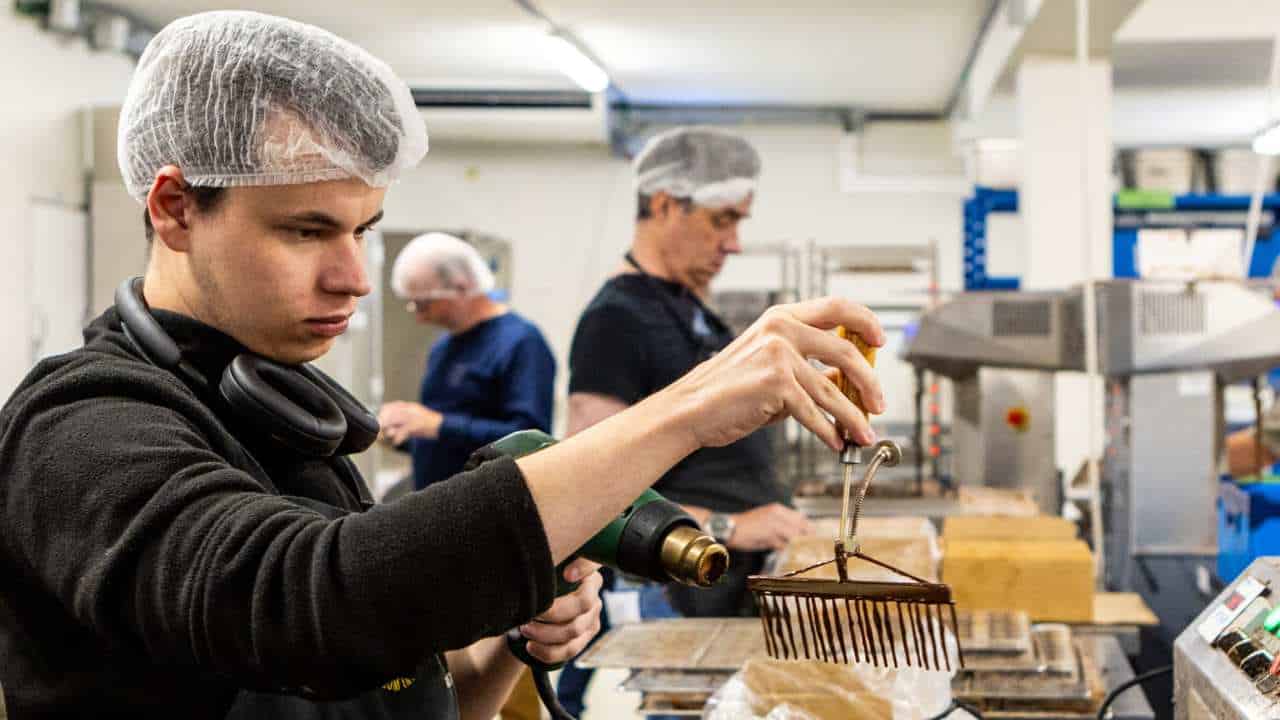“Since 1972, United Fund for Belgium has been helping the most vulnerable by financing projects of associations working with disabled people, children in distress and the most deprived.
We met Catherine Tricot, Executive Director of the association, who is very committed to the fight against social exclusion and to the integration of the most disadvantaged in our society.
What message would you like to pass on the occasion of this milestone for the association?
First of all, we are proud of our achievements over the past 50 years in the fight for social integration. During this half-century, we have collected 27 million euros from our donors and donated all of it to about 3,000 projects throughout Belgium. I would like to emphasise the importance of our role as a ‘connector’ between our donors and the associations we support, and the trust that companies place in us. This trust is linked to our good governance. The funding mechanism of our operations guarantees that all donations are 100% redistributed to the charity projects. And we adhere to the Code of Ethics of the Association for Ethical Fundraising (AERF) and are members of Donorinfo.be.
How is the association managed and with which staff?
Our mission is to collect funds from companies and allocate them to concrete projects of charities. We are a small team of four people supported by a board of directors, of which I am a member, which includes both company representatives and independent people.
For the assessment and acceptance of projects, we work with an allocation committee of about twenty people, spread across Belgium. The members of this committee visit associations in the area that submit projects, discuss with them and when they feel that a project meets UFB’s requirements, the chairman submits it to the board of directors.
The projects are always very concrete and directly benefit the people who are the beneficiaries of the associations. The projects are diverse, such as support for an association to obtain a converted van for the disabled, a new kitchen, a vegetable garden for children, and we also support hypo-therapy, for example through the construction of a riding school.
Do you support one-off projects linked to current events?
That’s been the case recently. We have done a lot of work around the needs resulting from the lockdown, and last year the floods kept us very busy. We helped associations in the Liège region that were directly impacted and had lost everything. We gave each of them much more than the maximum of 10,000 euros specified in our policy. And one of the donors, Solvay, donated a significant amount.
And this year, with the arrival of the Ukrainian refugees, we made a call for projects and donations. We immediately received a lot of funds, even before we had projects, thanks to the generosity of companies and individuals.
On the other hand, many companies have recently set up their own foundations and no longer consider UFB as their first choice for humanitarian work. But in the case of Solvay, for example, it was their foundation that supported us financially, because there was a match between our respective missions and objectives.
How do you operate and how do you raise funds?
Our income is generated by companies and individuals. In addition, we organise fundraising events, including our Gala dinner, which this year took place at the Château de Grand-Bigard, and our annual golf tournament at the Château de la Tournette in Nivelles. Income also comes from the sale of Galler chocolates and Dandoy biscuits at Easter and Christmas. These partner companies sell them to us at wholesale prices and the proceeds go to us. We also offer wine from Maison Pirard in the same way. Companies purchase these products from us on a large scale and give them to their employees and customers.
We raise about 800,000 euros a year and I would like to reach one million milestone as we celebrate our 50th Anniversary. In this context, Gala Dinner for our Jubilee was a great success with 200 guests at the Château de Grand Bigard. The actress Stéphanie Coerten, who also presents the Queen Elisabeth competition, was our master of ceremonies. Auctions enabled us to raise 25,000 euros, thanks to art pieces generously offered by four artists, including Denis Meyers. The atmosphere was very festive, an extraordinary evening.
And Golf Tournament is clearly another important date?
Absolutely. It’s the next event. Many companies participate every year, signing up players. The tournament ends with a dinner and an auction.
We are proud to have Olympic champion Vincent Vanasch, the goalkeeper of the national hockey team, as our ambassador. On the gala evening he was in London and we did a live broadcast with him. Among other things, he offered a corporate conference for auction, but he also offered us his hockey stick with which he won at the Olympic Games in Tokyo. This will be auctioned at the tournament on 12th September.
What are the arguments why a company should be a member of the United Fund for Belgium? How can a company benefit from it?
We have been a trusted partner to many businesses for many years. Swift, Euroclear, Beobank, Marsh, Donaldson, Linklaters, Toyota, Lenovo, among others. We support and assist Belgian companies in the development of their corporate responsibility strategy, give them a concrete, sustainable and measurable impact. This is an increasingly innovative approach, because they want to support social causes, get involved and want to make a concrete, sustainable and measurable impact. In this context, we are an excellent partner, because we accompany them from start to finish, they know where their money is going, they can also choose projects to support. We can provide them with figures on the impact of their action and the number of people who benefit. We are also very well equipped to organise intra-company fundraising campaigns, on a small or large scale. In this case, they can contact us for the organisation of the fund raising campaign, we have developed a platform dedicated to this and employees can make their donations directly to UFB and will receive, like companies, their certificate for the tax deduction.
There are different approaches to managing corporate fundraising campaigns. We have a good example with Lenovo. Every year the company organises an auction of their depreciated equipment for their staff, from which all proceeds go to support our work. The amount raised is doubled by the US-based Lenovo Foundation.
As part of their CSR/ESG strategy, companies can also volunteer with non-profit organisations. Many companies now include volunteer days in their annual plan with a certain number of people and days. In this case, they can contact us and we will take care of the entire organisation of the various volunteer days.
In addition, associations know where the funds come from, because we inform them.
What is the next step?
To strengthen our reputation. In particular through a presence on social networks. And very clearly on LinkedIn, because our primary target is B2B. Now that Covid is behind us, I also plan to visit companies and, among other things, contact former partners, because some of them don’t really know us any more. Having a different CEO is enough to make you forget about them.



